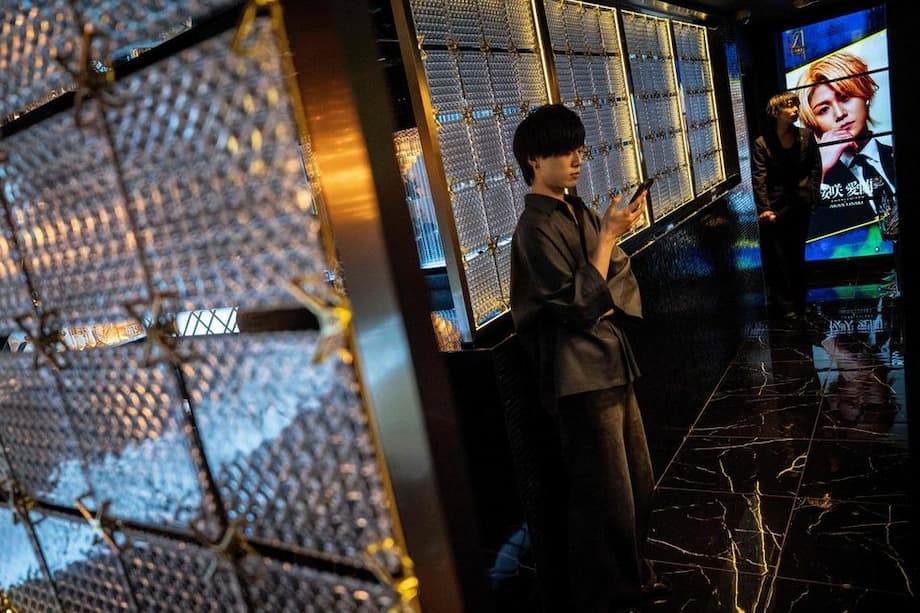Japan’s Host Club Crackdown: Why Authorities Are Targeting the Nightlife Industry
Japan’s vibrant nightlife has long been famous for its unique entertainment venues, and among the most iconic are host clubs—glitzy establishments where sharply dressed men charm female patrons with conversation, flirtation, and the illusion of romance. But beneath the neon lights of Tokyo’s Kabukicho and other entertainment districts, a darker reality has emerged: mounting reports of financial exploitation, emotional manipulation, and even coercion into sex work. In response, Japanese authorities have launched an unprecedented crackdown, introducing sweeping new laws and enforcement measures aimed at curbing the industry’s most predatory practices.
- Japan’s Host Club Crackdown: Why Authorities Are Targeting the Nightlife Industry
- What Are Host Clubs and How Do They Operate?
- How Did Host Clubs Become a Social Problem?
- What Prompted the Crackdown? Rising Reports and Public Outcry
- What Does the New Law Change?
- How Are Host Clubs and the Industry Responding?
- Will the Crackdown Work? Challenges and Broader Implications
- In Summary
This article explores the origins of host clubs, the nature of the abuses that prompted government action, the details of the new regulations, and the broader social implications for Japan’s nightlife and vulnerable women.
What Are Host Clubs and How Do They Operate?
Host clubs are a staple of Japan’s adult entertainment sector. Unlike hostess bars, where women entertain male clients, host clubs reverse the roles: young men, known as “hosts,” entertain female customers. Patrons pay for drinks, time, and attention, often spending hundreds or even thousands of dollars in a single evening. The atmosphere is one of luxury and fantasy, with hosts competing to be the most popular and lucrative in their clubs.
Hosts are typically paid a basic wage, but the bulk of their income comes from commissions on drink sales. This system incentivizes aggressive sales tactics, with hosts encouraging customers to order expensive bottles of champagne or participate in elaborate rituals like “champagne towers.” The more a customer spends, the higher the host’s ranking and status within the club. Public displays, such as billboards boasting a host’s “No.1” status, have traditionally fueled this competitive environment.
For many patrons, the appeal lies in the illusion of intimacy. Hosts often maintain close contact with regular customers, sending affectionate messages and making promises of special treatment—or even romance. While some women visit host clubs for fun or escapism, others become emotionally invested, blurring the line between fantasy and reality.
How Did Host Clubs Become a Social Problem?
While host clubs have existed since the 1960s, recent years have seen a surge in reports of exploitation and abuse. According to Japan’s National Police Agency (NPA), police received 2,776 host club-related complaints in 2024 alone—a dramatic increase from previous years. Many of these cases involve women racking up massive debts, sometimes under false pretenses or through covert upselling. In the most troubling instances, women unable to pay their bills have been coerced into prostitution or adult video work to settle their debts.
Several factors contribute to this vulnerability. While host clubs once catered primarily to affluent businesswomen, today’s clientele increasingly includes young women facing poverty, abuse, or social isolation. For some, the clubs offer a sense of acceptance and belonging—albeit at a steep financial cost. As Arata Sakamoto, head of the Kabukicho-based non-profit Rescue Hub, explained, “To them, host clubs have become a place where they feel accepted and reassured they can be who they are, albeit in exchange for money.”
The competitive nature of the industry also plays a role. Hosts are under constant pressure to boost sales, and some resort to manipulative tactics. Customers may be told, “If you love me, don’t complain,” or threatened with the end of the relationship if they refuse to buy drinks. In extreme cases, hosts introduce indebted clients to “scouts”—brokers who funnel women into the sex trade for a referral fee.
What Prompted the Crackdown? Rising Reports and Public Outcry
The scale and severity of abuses in host clubs have drawn increasing public attention and political concern. Media reports have highlighted cases of women being emotionally manipulated, driven into debt, and forced into sex work. The 2022 television drama “Tokyo Vice,” which depicted the consequences of host club debt and predatory practices, further galvanized public opinion and caught the attention of Tokyo’s governor.
In late 2023 and early 2024, the NPA issued directives to police forces nationwide, urging them to intensify crackdowns on malicious host clubs. Raids followed: between November and December 2023, police inspected 729 host clubs across 33 prefectures—out of an estimated 1,000 nationwide. In Tokyo’s Kabukicho district alone, authorities found illegal practices at 145 out of 202 inspected clubs, including unlicensed operations, failure to display prices, and serving alcohol to minors.
An expert panel convened by the NPA concluded that stricter regulations were needed to prevent clients from incurring excessive debts and being forced into prostitution. The panel’s report emphasized the serious financial, mental, and physical harm suffered by victims, calling for robust government intervention.
What Does the New Law Change?
In response to mounting pressure, Japan’s parliament passed a revised version of the Entertainment Business Law (Fueiho) in May 2025, with key provisions taking effect in June. The law introduces several significant changes:
- Official Recognition and Oversight: Host clubs are now formally classified as “adult entertainment establishments,” subjecting them to stricter oversight, registration requirements, and curfews.
- Ban on Emotional Manipulation: It is now illegal for hosts to exploit customers’ romantic feelings to pressure them into buying overpriced drinks or services. Phrases like “If you don’t order, you won’t be able to see me” are specifically prohibited.
- Transparent Billing: Clubs must clearly display prices and cannot charge for items or services not explicitly ordered by the customer. Covert upselling and false advertising—such as luring customers with cheap drinks only to charge exorbitant fees—are banned.
- Criminal Penalties for Coercion: Coercing customers into sex work, adult video appearances, or other forms of prostitution to repay debts is now a criminal offense, punishable by up to six months in prison and fines up to ¥1 million. Unlicensed businesses face even stiffer penalties, with fines up to ¥300 million.
- Ban on Scout Kickbacks: Hosts and scouts can no longer receive referral fees for introducing customers to sex establishments.
- Advertising Restrictions: Billboard advertising that promotes the popularity or sales rankings of individual hosts is now prohibited, as authorities believe such signs fuel unhealthy competition and profit-seeking.
Administrative penalties for violations include warnings, business suspensions, and license revocation. Repeat or criminal offenses can result in business closure and arrest.
How Are Host Clubs and the Industry Responding?
The new regulations have sent shockwaves through the host club industry. Many clubs have scrambled to comply, covering up billboards and removing slogans that once touted hosts’ “No.1” status. For hosts, the loss of public rankings and the threat of legal penalties have created a morale crisis. As Ran Sena, owner of the popular Kabukicho club Platina, lamented, “It’s been the aspiration of many hosts to be called No.1, earn a title and become famous in this town. Now, they don’t even know what they should strive for.”
Some industry insiders argue that the law is too vague, making it difficult to distinguish between genuine romantic advances from clients and manipulative behavior by hosts. Others worry that the crackdown will drive the industry underground or lead to rebranding efforts that circumvent the new rules. As one analysis in Nippon.com noted, “Even with law reform, host clubs are likely to simply be rebranded. Legal reforms may help, but deeper societal changes are needed to address the root causes.”
For many women, the changes are bittersweet. While some see the new rules as necessary protection, others worry that the sense of acceptance and excitement they found in host clubs will disappear. As a 34-year-old IT worker told France 24, “I hope this will remain a place that keeps my female hormones overflowing.”
Will the Crackdown Work? Challenges and Broader Implications
Whether the new regulations will succeed in curbing exploitation remains to be seen. Enforcement is a major challenge: the host club industry is vast, with many establishments operating in legal gray zones or under the radar. Criminal groups, known as “tokuryu,” are suspected of involvement in some of the most egregious abuses, making it difficult for authorities to trace profits and dismantle illegal business models.
There is also concern that the underlying issues—loneliness, poverty, and social isolation—will persist, driving vulnerable women to seek solace in other risky environments. As Nippon.com observed, “The problem is not women working to fund visits to host clubs, but when they are coerced into prostitution. Building a healthier society is necessary to truly address these issues.”
Still, the crackdown represents a significant shift in Japan’s approach to regulating its nightlife industry. By targeting emotional manipulation, coercive billing, and the link between debt and sex work, the government hopes to protect vulnerable individuals and restore public trust. As the NPA’s Commissioner General instructed police at a nationwide meeting, authorities must “trace the flow of profits, dismantle illegal business models and enforce regulations against those responsible.”
In Summary
- Japan has launched a sweeping crackdown on host clubs following rising reports of financial and sexual exploitation of female patrons.
- New laws ban emotional manipulation, covert upselling, and coercion into sex work, with stiff penalties for violators.
- Host clubs must now register as adult entertainment establishments and comply with strict oversight and advertising restrictions.
- The crackdown was prompted by public outcry, media attention, and a surge in police complaints—2,776 in 2024 alone.
- Industry insiders warn that the law’s vagueness and enforcement challenges may drive the business underground or lead to rebranding.
- Experts argue that deeper social issues, such as loneliness and poverty, must be addressed to prevent future exploitation.












